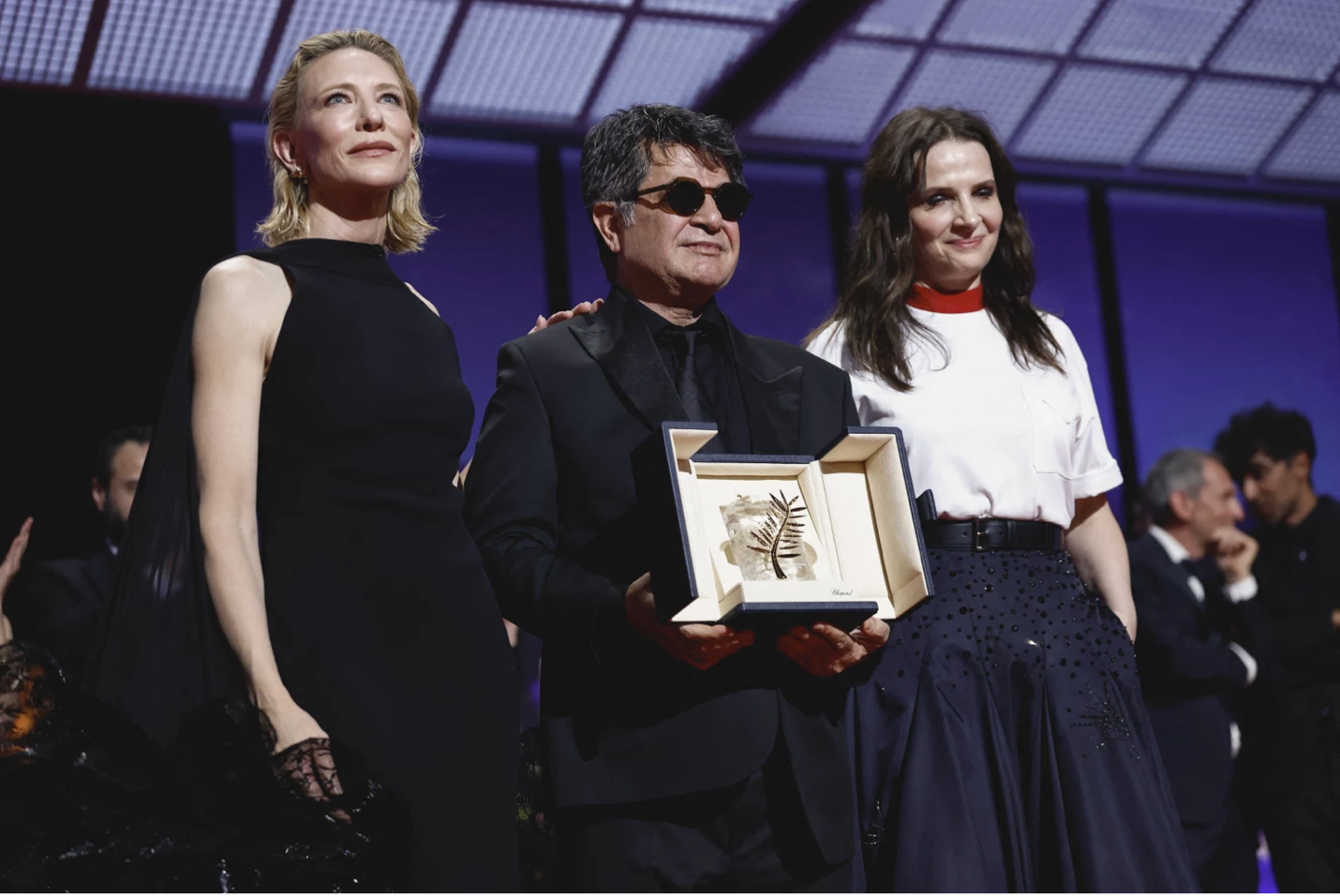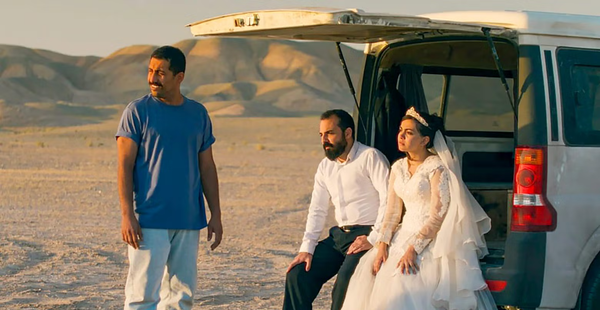★★★★ (4 out of 4)
It only hurts when you laugh. That’s the driving force behind “It Was Just an Accident,” the mesmerizing new tragicomedy and moral fable from the outspoken, often misjudged, sometimes jailed Iranian director Jafar Panahi.
Having already accepted the Palme d’Or from judges Juliette Binoche and Cate Blanchett at the Cannes Film Festival in May, Panahi is now bringing his film to a theater near you. No one will arrest you for seeing it, unless you’re in Iran, but it might inspire visions of retribution with a diamond-hard brilliance that ranks it among the best movies of the year.
“It Was Just an Accident” is Panahi’s first film since being released from jail in Iran. It was shot without a permit from the Iranian government and features women not wearing a hijab to speak out against the country's oppressive hijab law. What’s it about? The official logline says, "What begins as a minor accident sets in motion a series of escalating consequences." As you can probably guess, that’s not the half of it.
Jafar Panahi is a unique and unforgettable world-class film artist who aches for justice for his traumatized characters, of which he is one. This is a cry from his bruised heart.
Though anger eventually boils over into rage in Panahi’s film, you could at times mistake it for a comic thriller with a subversive grievance against authoritarian rule. That’s how Panahi sneaks up and floors you with such films about his country’s oppression as “Taxi,” “Closed Curtain,” and “No Bears.” Even laughs that do bubble up have the sting of moral gravity.
Eghbal, played by Ebrahim Azizi, is driving home at night with his pregnant wife (Afssaneh Najmabadi) and daughter (Delmaz Najafi) when he accidentally hits and kills a dog. That leads to a string of coincidences: The car stalls out. A passing motorcyclist offers help if they follow him to his warehouse workplace. That’s when the man’s boss, Vahid (Valid Mobasseri), spots Eghbal and hears the squeak of his artificial leg. The next sound is all unholy hell breaking loose.
Vahid thinks that Eghbal is “Peg-Leg,” an interrogator at an Iranian prison where Vahid was tortured. Though prisoners were blindfolded, Vahid tells Peg-Leg, “I’d know the squeak of your artificial leg anywhere.” Vahid says this after he has kidnapped Peg-Leg and taken him out into the desert to bury him alive. Talk about escalating tensions.
Eghbal insists he is not Peg-Leg since his limb was amputated only last year and he has the fresh scars to prove it. Vahid needs more evidence, so he sets out in his white van to find others tortured in the same prison.
One works in a bookstore and urges mercy, another says to kill him anyway. Yet another former detainee, Shiva (Maryam Afshari, performing without a hijab), is a wedding photographer who brings along the bride (Hadis Pakbaten) who is eager to confront the man who raped and tortured her.
And so Panahi begins his revenge drama disguised as a road movie with strangers gathered together for a common cause they’re not quite sure about. You’ll laugh when they stop for food and force Eghbal to pay. Later, when they give Eghbal’s pregnant wife an emergency ride to the hospital, all you see are people with the light of compassion still flickering.

Panahi’s film shares its retribution theme with “Death and the Maiden,” the play and film written by Ariel Dorfman that evoked the tortures inflicted in Chile by the dictator Augusto Pinochet. Panafi leaves the ending to his film ambiguous. But is it really?
Above all, Panafi is a humanist. The evidence is in his films and the way he lives his life. There’s a quote from Dorfman that “what we feel when we watch and whisper and ache with these faraway people could well be that strange trembling state of humanity we call recognition.”
“It Was Just an Accident” recognizes our shared humanity in a way that makes Panahi the unique and unforgettable world-class film artist he is. He aches for justice for his traumatized characters, of which he is one, without serving as executioner. There’s nothing accidental about “It Was Just an Accident.” It’s a cry from Panahi’s bruised heart.

